#Eponine talk
Explore tagged Tumblr posts
Text

yeah
#éponine thénardier#eponine thenardier#gavroche thenardier#gavroche thénardier#les mis#les miserables#talk
281 notes
·
View notes
Note
Utterly obssessed and in love with goth cosette in your drawing 😭❤️❤️❤️❤️❤️❤️❤️. May we have more goth cosette please
I have been sitting on this ask because @eposetteweek was coming up! Ask and ye shall recieve! >:)
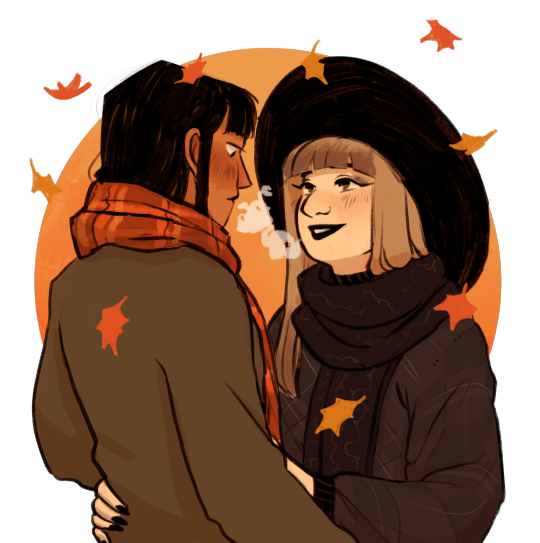
#Thank you so much for the ask and for your patience!!#I grabbed the same big hat and hair style from the post u were talking about but gave her more fall vibes :))#bc I love fall and Im so happy it's here#eposette#eposetteweek2024#eponine#eponine thenardier#cosette#cosette fauchelevent#les mis#les miserables#my-art
244 notes
·
View notes
Text
AAAAH YES Eponine-Javert parallels Talk
--I think there's a key difference between them, particularly key in this book, and it's that Eponine still has love --not just for Marius, who she really does care about (while Javert never seems to know more than Respect for authority), but for some of her family that isn't her dad. She cares that her mom is gone;that relationship must have gone downhill wildly, but we saw Mme T DID still care about her girls as much as she could, and Eponine seems really upset about her death.
In the middle of her deathbed love confession, she still hears Gavroche singing , and doesn't want him to see her -- he would "scold " her, and he probably would , Gavroche is like that. He would be upset that Eponine was hurt and she knows it; she knows he cares about her, and she cares about him though there's not much either of them can do to help each other. There's Azelma, too, who she's shared most of her life with. Eponine never really talks much about Azelma--but she does, as we see , take on work without demanding Azelma do it instead, and when they're together she seems to be trying to keep Azelma with her--as "safe" as she can offer.
I think this is key because it means Eponine can't share in Javert's "inexpressible hatred" of people like herself. Those other people like her are Like Her; They Could Be Her Brother. She can and does hate herself , but she still has to accept that people like her can be loved, because she loves some of them.
Like Valjean with his family pre-prison, it's an exhausted love, one without energy or resources for much joy. But it's there and real, a feeling that makes her run errands in the snow while Azelma stays inside, and to want to protect her little brother from worry even as she's dying.
It can't save her life, but I think it saves her, in a way that matters. She's got less status than Javert, she's got less social power than him, she's got worse material circumstances --but she's not the one who dies unseen and terrified in the dark.
I’m thinking about how Javert and Eponine are character foils again– and how at the barricades they both have a moment where they say “I’m going to die but I am happy, because I’m taking you with me.“
As Eponine dies of her bullet wound she “happily” talks to Marius about how glad she is that he’ll die too (so they can meet again in death):
“You see, you are lost! Now, no one can get out of the barricade. It was I who led you here, by the way! You are going to die, I count upon that. (………) Oh! How happy I am! Every one is going to die.”
(…) “But perhaps you will be angry with me for it when we meet again presently?”
And when Javert is about to be executed he laughs, and “happily” jokes about how all the insurgents are going to be killed, and how they’ll meet again in death:
Javert began to laugh with that noiseless laugh which was peculiar to him, and gazing intently at the insurgents, he said to them:
“You are in no better case than I am.”
“All out!” shouted Enjolras.
The insurgents poured out tumultuously, and, as they went, received in the back,—may we be permitted the expression,—this sally of Javert’s:
“We shall meet again shortly!”
“When we meet again presently” vs “we shall meet again shortly….” ;_;
Both of them are bizarrely calm about dying, as if everything is going according to plan. Because…..it is? Eponine came to the barricade to die, Javert surrendered without putting up any resistance and patiently waited for his execution with a smile (and after Valjean refused to execute him he killed himself.)
This all reminds me of the earlier scene where Eponine threatens to send her father to prison even if he kills her for it (a scene where she sounds eerily similar to Inspector “Dog son of a Wolf” Javert)
“I’m not the daughter of a dog, since I’m the daughter of a wolf.
(………….)
What do I care if I’m picked up to-morrow morning on the pavement of the Rue Plumet, killed by the blows of my father’s club, or whether I’m found a year from now in the nets at Saint-Cloud or the Isle of Swans in the midst of rotten old corks and drowned dogs?”
She was forced to pause; she was seized by a dry cough, her breath came from her weak and narrow chest like the death-rattle.
She resumed:—
“I have only to cry out, and people will come, and then slap, bang! There are six of you; I represent the whole world.”
“I’ll side with the police because I’m desperate for any sense of power over my own life and if I can only get that power by killing myself, then so be it! I’ll destroy myself, but on *my* terms.”
Eponine really is at the same crossroads Javert was at when he was a child? She really does sound like she could be a younger/more vulnerable/more emotional/more desperate version of Javert, who hasn’t yet lost their ability to empathize with other people or their desire to have a “normal” life with “normal” relationships. Compared to Javert, Eponine is still extremely innocent; the cruelest thing she does is attempt to get Marius to die with her, but she’s ultimately still just a traumatized child.
Javert is like a version Eponine who lost (or deliberately destroyed) their identity, their humanity, and their ability to care about other people. Eponine scares away her family by threatening to call in Society and the Law, realizing that she alone is powerless but can use the law as a way to terrorize people into staying in line. She plans to get Marius branded a criminal and shot to death by the gendarmes at the barricades, so they can be together in death.
Both Eponine and Javert want to feel like their lives have meaning. They both have a specific plan for their Beautiful Heroic Perfect Death, but both of those plans fall through. Eponine planned to die at the barricades with Marius, but Marius doesn’t die. Javert planned to be executed and ~die for his cause~ but his executioner saves his life instead.
And anyway yeah. Eponine is like “someone who could’ve gone down the same path as Javert, but isn’t as far gone yet….” and that adds another layer to the way they act the barricades.
Eponine and Javert both say: “I’m dying, but at least I’m taking you with me!” But they mean it differently.
Eponine means “I’m happy that you’re going to die, because it means I won’t have to die alone. I’ll have company.”
While Javert means “I’m happy that you’re going to die, because I want you all to suffer too.”
140 notes
·
View notes
Text

so I found out ab Duo Nina gushing over legally distinct Persona 5 yaoi in her voicelines and I immediately had to pull her............
#nina fire emblem#eponine fire emblem#feh#fire emblem#fire emblem heroes#kagero is here too ig#I'm not even gonna tag this as shuake LOL#I knew the whole banner was a massive Persona 5 reference but#straight up talking ab a younger dark haired guy and an older ginger guy???#talking ab forbidden romance between a guard and thief????#the one guy in her yaoi book even looks like akechi#other guy doesnt look like renren tho#talking ab them revealing secrets over time (ok that ones a stretch)#anyways I never pulled this unit despite Nina being my daughter bc the combo was too weird#but now I'm like. this is the best unit in the game#top tier taste princess lets go to comiket together#this is only a step above a sketch sorry
59 notes
·
View notes
Text
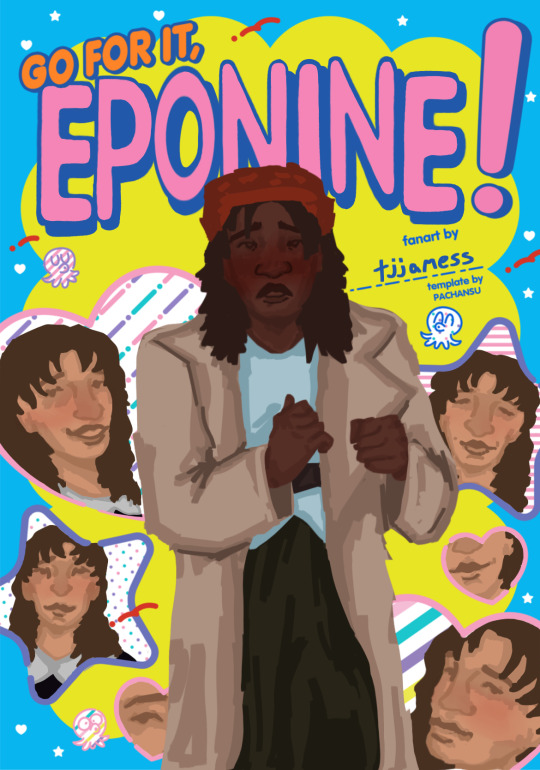
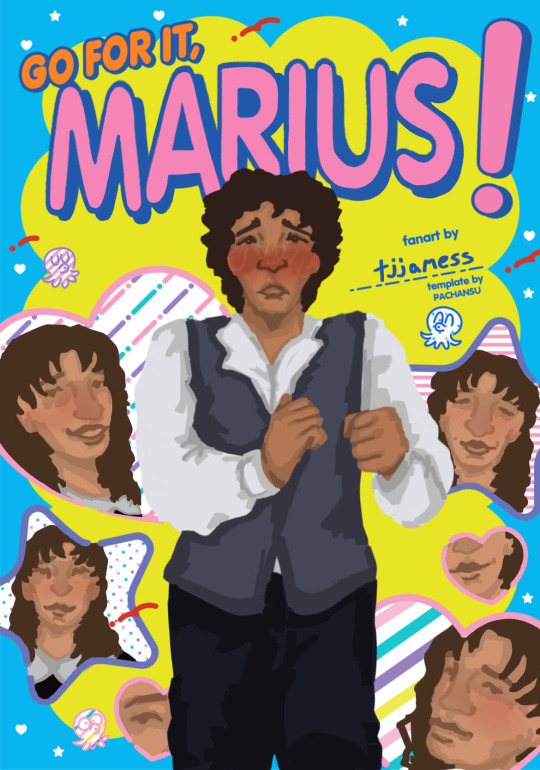
More Cosette appreciation is in order
Had to make two versions, cause why should I be forced to choose?
Cosette has two hands after all
#They’re so silly I love them#When the love triangle is actually a triangle#I’m personally a brunette Cosette truther and I can talk for ages about this however I will restrain myself#eposette#marisette#cosette my dear#Cosette#eponine#marius pontmercy#les mis#les mis fanart#les miserables#go for it nakamura#tjjamess art
108 notes
·
View notes
Text
Did she die? Did she sell her soul? What DID this?
this really struck me , because you're right; she IS different, now. She was an obviously traumatized girl/young woman before ; now she's become something uncanny, and only gets described as more uncanny as the story goes on . And...I think it's prison? I think it's even that little brush with prison.
Aside from Cosette, the character Eponine gets the strongest parallels with is Javert-- but that only starts happening now, post-prison. It's especially noticeable with the Rue Plumet scene , of course, but even before then--she's aware of herself as being not just socially ostracized but socially tainting in a way we didn't really see before. She didn't hesitate to talk to Marius at the Gorbeau house; she was bold in the way that covers up shame, as Hugo says, but she also had a kid's lack of self-awareness to some degree. Post- arrest, she knows Marius can't be " seen" with her*, and she won't even accept Mabeuf's thanks without insisting on her own corruption.
She sounds like Valjean , convinced of her own unalterable state of ostracization; she sounds like Javert, devoted to protecting a system she now sees herself as forever outside. And she's acquired something like their superpowers-- Valjean's disguises and ability to seemingly move through walls, Javert's ability to apparently just Not Get Killed--along with ramping up her own message-delivering ability to supernatural psychopomp levels, but for all of them it comes at the expense of the legal system severing them, to some degree, from the power of those who still count as regular members of human society.
-*which, besides being about social shame, is about Marius being seen with a prostitute; as such, she would be forbidding from having a man " following" her, and she's aware she can't look like anything else with him right now D:
Brickclub 4.2.3 ‘An apparition to Father Mabeuf’
Mabeuf is fading, and his vain hopes for the future and total lack of planning are disturbing. He pawned his copper plates first, and they were what he would have needed to get his book printed, which is his only source of income. It feels very specific to his character that he cut ties with the most generative thing he owned first.
This book doesn’t have a lot explicitly to say about what provisions society should make for the elderly, but Mabeuf’s story says clearly there should be something. He’s eighty; he should be allowed to rest without worrying about starving, or about having no one around who can water his garden. Myriel had Hugo’s idea of a perfect death, but there has to be some recourse for poor people who don’t have that.
This is the beginning of Mabeuf’s selling himself off piece by piece, like Fantine.
Like Myriel said, the beautiful is as useful as the useful–maybe more so. But Mabeuf is in desperate need of the basics, and in the absence of them he’s clinging to flowers.
It’s like Fantine clinging to her hope of Cosette, but it also feels extremely different. Is it wrong that Mabeuf feels to me like a deluded and diluted version of her? Flowers are important in this book, but Fantine’s story was about how she kept her eye on the most important thing, always, and she fought for that to the end. Mabeuf’s clinging to the flowers feels like he’s already given up hope, and now he’s just distracting himself as best he can.
At the same time, maybe there are worse things to lose. He keeps his soul at the expense of everything else, and that’s tragic and in some ways frustrating, but–I don’t know, there are plenty of people in this book who choose to become monstrous instead.
And on that note, we meet Eponine, who has become much stranger. She isn’t monstrous in the moral sense–like, say, her parents are–but she’s stopped being quite human. Marius’s and Mabeuf’s descents are linked explicitly to each other, but she’s part of that comparison too.
We’re entirely external to Eponine here. She’s an apparition and a goblin, and–possibly–an angel. She does a good deed in watering Mabeuf’s flowers, though it’s transactional; she wants Marius’s address. But she’s noticing suffering and alleviating it, and that’s huge.
And yet, as we’ll see throughout, she seems to have separated herself from the normal, mortal world in order to do it. We’re already getting that eldritch, ring-wraith quality to her, and a feeling that whatever agency she’s gained by this point in the novel, she gave up her humanity to get it.
Hugo said–entirely inexplicably–in his description of Marius:
We must not suppose that his reason was disordered. Quite the contrary. He had lost the capability of work, and of moving firmly towards a definite end, but he was more clear-sighted and correct than ever. Marius saw, in a calm and real light, although a singular one, what was going on under his eyes, even the most indifferent facts of men; he said the right word about everything with a sort of honest languor and candid disinterestedness. His judgment, almost detached from hope, soared and floated aloft.
And that doesn’t describe Marius at all, but it’s not a bad description of what Eponine has become. The “moving firmly to a definite end” is up for debate–she’s very definite and effective in what she does, but at the same time, like with Mabeuf, there’s no endgame here. None of her plans lead to a better future, or any kind of future. Her power comes from a sense of futurelessness–she’s already dead.
And it’s interesting that that happens entirely off screen. We have an outline of what happened to her–she left her sentry duty to go off with Montparnasse; she was arrested and jailed and eventually released. She was asked to investigate the Rue Plumet house and lied about it.
But she was a girl before, if a strange and sick and uncanny one. Suddenly she’s something else.
Did she die? Did she sell her soul? What DID this?
#the legal system says they're something Other#what is that Other? To Be Determined#but they're written out and can't write themselves back in#Eponine talk#long post sorry folks
59 notes
·
View notes
Text
Thinking how Monsieur and Madame Thenardier hate themselves so much, that they abuse and neglect their own children especially after the Thenardiers got bankrupt, because their own kids look like a mix of both Monsieur and Madame Thenardier in spades
And that contributes to Eponine's self loathing arc cuz she has a striking resemblance to her biological mother, whom she despised. Sometimes Eponine can't bear to look at her reflection because her self hatred made her believe she was ' ugly '
It wasn't until the Thenardier sibs began to receive kindness from outside the Thenardier circles did they realize that they aren't in fact ugly, and Eponine realizes that she is beautiful in her own way.
Meanwhile Cosette, who believed that her mother was an angel from Heaven for most of her life, and after an intensive healing period, she came to believe herself as ' pretty ' because of how her mother's goodness lived through. Only to later on realize that her mother is actually a flawed, messy but ultimately good person. That is going to be a shock for Cosette at first since she placed her mother at such a high pedestal, but she came to understand and accept her mother even more
Thinking how Eponine thought herself as a ' devil ' due to self hatred. But the truth is she is a deeply flawed but fundamentally good soul who needs healing.
Thinking how, since adoption, nearly everyone around Cosette coddled and overprotected her and viewed her as a pure, innocent angel. But Cosette is also wild and brave at heart. And as much as she is grateful and appreciative of the nuns, Valjean and Marius, I believe a part of her also wants to go about and explore more after the June Rebellion, just as a reconciliation for her soul. There is a foundation of wildness and bravery in her.
Thinking how Eponine literally can't forgive herself for bullying Cosette in the past for a time, only for Cosette to already forgiven Eponine and Azelma and grieved for their misfortunes. I bet Cosette also mourned for Eponine's death, not just out of trauma survivor solidarity, but of the life Eponine could have had if she survived.
Thinking how Eponine built walls as a survival mechanism, only to realize that there is power in softness too
Thinking how Cosette clung onto pacifism and embracing ' ladylike virtues ' as a coping and surviving mechanism, only for her to become much braver as the June Rebellion goes on - not in a warrior's way, but in a more pacifistic activist way, as she came to do charity work and then helps nurse Marius back to health
I think there is also an element of frustration here in Cosette that how everyone else seem to shield her from darker aspects of things in fear of breaking her heart even more. While they do mean well, Cosette would have understood more if the truths are more revealed to her. Valjean and Marius are so scared to push Cosette away if the darker truths are revealed....but Cosette still loves and cares for them anyway and forgives them for such trespasses. She just wished she was told of these things sooner.
These 2 really need healing, and deserve better
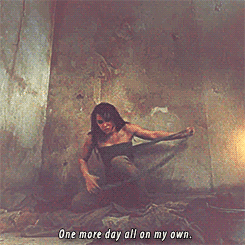
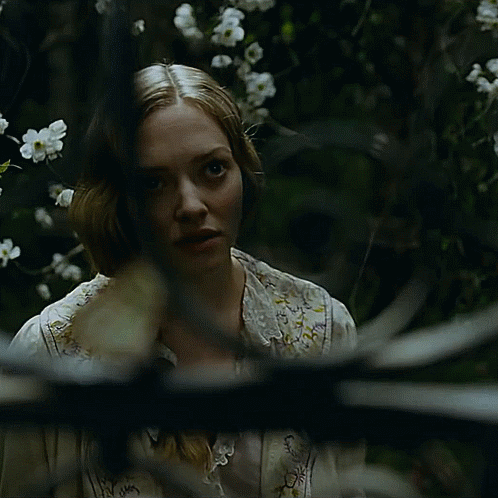
#eponine#cosette#les miserables#cosette loves valjean the nuns and marius dearly and STILL can be frustrated at them for hiding so much from her#THOSE 2 ELEMENTS CAN EXIST#and Im sure Marius and Cosette will have a long talk about such after valjean doed#*died#like marius and cosette learn to build a stronger foundation of trust in each other after the whole truth of things is revealed#marius i know you love cosette but you cant hide things from her forever#defend cosette and eponine!
24 notes
·
View notes
Text
I hate the relationship between Eponine and Marius in the musical. It's giving booktok girl straight romance and I'm not here for it
11 notes
·
View notes
Text
I let out a gasp at today's title; I had forgotten how fast all the deaths come (Bahorel, Jehan and now Éponine!) I wanna focus on Éponine:
Éponine's humanization
The last we saw Éponine named was in 4.8.3, facing off Patron-Minette. There, she is reduced to a multitude of animals: a dog, a daughter of a wolf. And here, just before her identity is revealed, she is referred to by 'it' pronouns, once again comparing her to something less-than-human:
It was crawling along the pavement. It was this that had spoken to him.
What a frightening and horribly sad image! Thankfully, once she says her name, she is humanized once more- giving her back her proper pronouns as well as giving her the agency to tell Marius to not go, to let her stay here and die in his lap. Not a very happy choice, but it's a choice that she gets to make for herself!
Though her choice to die (and to call Marius down to the barricades) is troubling, we cannot hate her for it after seeing how extremely messed up and tragic her life and death are, hence The Agony of Death after the Agony of Life. Though the agony most certainly refers to how miserable Éponine's entire life story has been, I think it can also refer to how agonising her choices have been to live and die: the agony of having to commit crimes just to live, and the agony of resorting to calling your friend down to both of your deaths in the hopes of reuniting in the afterlife, for it is the only way you believe you can be happy. Ultimately, this decision still humanizes Éponine despite her cold intentions: it shows how much she loves and dreams of Marius, to the point of desperation, portraying her as someone very human.
Overall, Éponine manages to bow out of the story with a very touching scene. Readers are reminded of just how human she was, even living in such desperate poverty, and Hugo makes a good choice letting her final words be one of an innocent-like love confession: in the end, no matter her actions or her life, she is still defined by her yearning for love. And we the readers are left to lament and reflect at how such a girl - so full of the potential to love - can be pushed to such a state. o7 Éponine, for such beautifully haunting final words.
58 notes
·
View notes
Text
this is like the equivalent to grabbing a cat by its scruff
49 notes
·
View notes
Text
I used to read Enjonine fanfiction (before I knew about Enjoltaire) and like, not that there's anything super wrong with the ship, I just don't personally ship it anymore, but in nearly every fic enj was so out of character that I can't believe I could even read them. every line I was like:

#it's been a while since I talked about enjonine and my stance remains clear. enjoltaire shippers shouldn't attack them#but it's okay to have different opinons. and I don't personally ship it anymore.#les mis#les miserables#les mis 2012#broadway#enjoltaire#enjolras#enjonine#enjolras x eponine#eponine#e/e#aaron tveit#samantha barks#and also not all enjonine shippers are homophobic!!! I cannot stress this enough.#I was called homophobic when I said I shipped it and I'm literally queer
10 notes
·
View notes
Text
the angelic reverb effect they used in the finale slapped holy shit
#talking about les mis#world tour baby#i already love love love the finale from when fantine comes in and especially the harmonies with fantine and eponine but it just got even#more beautiful#les miserables
6 notes
·
View notes
Text
Canon era, and specially canon compliant, les mis ships/relationships are a different kind of drug
#i'm talking both canon and fanon relationships btw#all the dynamics make me insane#spinning them in my head#blorbos fr#les mis#les amis#les miserables#grantaire#enjolras#jehan prouvaire#cosette fauchelevent#eponine#jean valjean#javert#and everyone else#victor hugo#i hate him (affectionate)#ALSO lil addition: jehanparnasse makes me specially insane :))))
50 notes
·
View notes
Text
HOLY SHIT THAT SCENE WITH MARIUS AND EPONINE WHERE THEY SING "A LITTLE FALL OF RAIN" IS LITERALLY XAVIER AND MC IN THEIR FIRST TIMELINE


#i know marius and eponine were never MEANT to be but like!!! listen!!!!!!!#xavier#loml....#everyday i see or remember something that reminds me of him and have a mini breakdown over it (/pos)#rose talks 🌹#lnds garden 🌹#lndthonks 🌹
7 notes
·
View notes
Text
eponine wld listen to tswift and r wld be such a hater in such a man way and make fun of her and rlly thats his most dislikable trait beyond all of the other stuff
#his sbiggest ick. if u will#but yah shes j a girl but also she has. no friends . so shes like oh… and then she doesnt talk ab liking taylor swift and ppl assume that#assume that shes only into alt/indie stuff#anyway the goal for tn’s high is to j be silly and not be freakish 🤞🤞#on my own.#les mis#grantaire#eponine
22 notes
·
View notes
Text
My favorite thing in the entire world is when people take two characters that the fandom will pin against each other for no reason and make them the bestest of friends.
Bonus points if the “pining against each other”somehow involves a man or a love interest
#em talks#cosette and eponine#lucy and juvia#I’m blanking right now but tag your favorites#girls being girls
9 notes
·
View notes